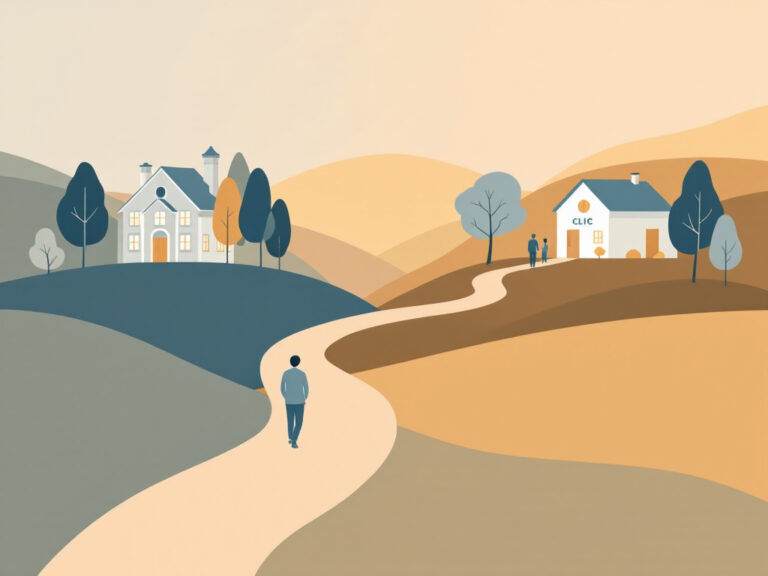When you’re considering an addiction recovery program in Arizona, you deserve a treatment path that addresses your unique challenges and offers comprehensive care. Whether you’re exploring detox services or specialized therapies, understanding your options will help you make an informed decision. This guide lays out the core program types, outpatient options, medication-assisted therapies and specialized treatments available across the state. You’ll learn how integrated dual diagnosis care and structured aftercare strategies come together to form individualized plans that provide the support necessary for lasting recovery.
Understand core program types
Arizona offers a spectrum of program types designed to meet varying levels of care. At HART Rehab, you’ll find tailored treatment programs that begin with medical stabilization and guide you through the healing process in a supportive environment.
| Program type | Description |
|---|---|
| Detoxification services | Medically supervised withdrawal to manage physical dependence safely ([detox program arizona]) |
| Inpatient residential rehab | 24/7 structured setting focusing on therapy, peer support and skill building ([residential rehab arizona]) |
| Standard outpatient care | Flexible schedules with individual and group therapy sessions |
Detoxification services
Detox is often the first step in addiction recovery. In a medical detox unit, you’ll have access to health professionals who monitor your vital signs and administer medications as needed. This approach minimizes discomfort and reduces the risk of complications during withdrawal.
Inpatient residential rehab
Residential rehab provides a structured setting where you live on-site and engage in daily therapeutic activities. You’ll participate in individual therapy, group sessions and holistic practices such as yoga or meditation. This immersive model gives you the space to focus fully on recovery, free from external triggers.
Standard outpatient care
If you need to balance treatment with work, school or family responsibilities, outpatient care allows you to receive support without relocating. Standard programs typically meet 1–3 times per week and cover education on addiction, coping skill development and relapse prevention techniques.
Explore outpatient program options
Outpatient care ranges from weekly sessions to more intensive frameworks. You can choose a level of support that aligns with your recovery goals and lifestyle.
Intensive outpatient programs
An intensive outpatient program (IOP) involves 3–5 sessions per week lasting 3–4 hours each. IOPs focus on relapse prevention, skill building and group therapy, making them ideal if you require more support than standard outpatient care ([iop program arizona]).
Telehealth and evening programs
Telehealth options and evening groups cater to those with challenging schedules. Virtual sessions offer real-time interaction with counselors and peers, while evening programs meet after work hours, ensuring you can maintain daily routines without sacrificing care.
Investigate medication-assisted therapies
Medication-assisted approaches combine FDA-approved drugs with behavioral therapy to improve outcomes, especially for opioid addiction.
Medication-assisted treatment
Medication-assisted treatment provides drugs like buprenorphine, methadone or naltrexone alongside counseling to stabilize brain chemistry and reduce cravings. Research shows that medication should be the first line of treatment for opioid use disorder, usually combined with behavioral therapy, as detox alone often leads to relapse [1].
Suboxone maintenance
Suboxone combines buprenorphine and naloxone to curb cravings and block the effects of other opioids. It’s prescribed under medical supervision and gradually tapered according to your progress. Maintenance on Suboxone allows you to engage more fully in therapy and daily life activities ([suboxone treatment arizona]).
Assess specialized treatment therapies
Therapy is a valuable component of addiction treatment that helps you address underlying issues and develop healthy coping mechanisms [2]. A variety of evidence-based and experiential modalities can be woven into your individualized plan to meet the unique challenges you face.
- Cognitive behavioral therapy (CBT) ([cbt therapy arizona])
Focuses on identifying and changing negative thought patterns that drive substance use. - Eye movement desensitization and reprocessing (EMDR) ([emdr therapy arizona])
Processes trauma through guided eye movements to reduce emotional distress. - Equine-assisted therapy ([equine therapy arizona rehab])
Uses interactions with horses to build trust, improve self-awareness and foster emotional regulation. - Wilderness therapy ([wilderness therapy arizona addiction treatment])
Incorporates outdoor expeditions to challenge you physically and mentally while reinforcing teamwork and resilience. - Dialectical behavior therapy (DBT)
Teaches skills in mindfulness, distress tolerance and emotional regulation. - Other holistic modalities
Biofeedback, art therapy and TMS may also play a role in strengthening mind and body, promoting a foundation for lifelong sobriety [3].
Plan integrated dual diagnosis care
If you’re facing both a substance use disorder and a mental health condition, integrated dual diagnosis care ensures both issues are treated concurrently. This approach prevents one disorder from undermining recovery efforts in the other, creating a comprehensive care model ([dual diagnosis treatment center arizona]).
Integrated care models
- Coordinated approach
Therapists and medical staff collaborate on a single treatment plan covering both mental health and addiction needs. - Co-located services
You receive all services at one facility, reducing barriers and improving communication among care providers.
Screening and assessment
Accurate diagnosis of co-occurring disorders relies on comprehensive assessment tools administered by experienced clinicians. Early identification guides the development of an effective, tailored plan.
Prepare aftercare strategies
Recovery extends beyond formal treatment. You’ll need ongoing support to maintain progress and build resilience against relapse.
Relapse prevention techniques
Relapse does not signal failure. Rates of return to use for drug addiction mirror those of other chronic illnesses, and a relapse often means your plan needs adjustment rather than abandonment [1]. Common strategies include:
- Building a trigger-awareness plan
- Establishing daily routines and self-care habits
- Attending support groups and therapy check-ins
- Practicing stress-reduction techniques
Sober living support
Transitional housing or sober living homes provide structure, accountability and peer support as you navigate daily life. Many centers offer step-down housing where you can practice independence while still engaging with recovery resources ([aftercare program arizona]).
Choose your recovery center
Selecting the right facility is a critical decision. You want a center that offers individualized plans and a supportive environment conducive to growth.
Personalized treatment planning
Every person’s journey is different. Your care team should create a tailored plan based on your history, preferences and goals, adjusting it as you progress.
Financing and insurance options
Explore payment plans, sliding-scale fees and insurance coverage to find a solution that works for your budget. Many treatment centers provide insurance verification support and can guide you through available assistance programs.
As you evaluate programs in Arizona, keep in mind the full spectrum of services—from detox to aftercare—that contribute to lasting recovery. With comprehensive care, compassionate staff and a community that understands your experiences, you can embark on a path toward healing and hope.
References
- (NIDA)
- (Rehabs.com)
- (The River Source)






